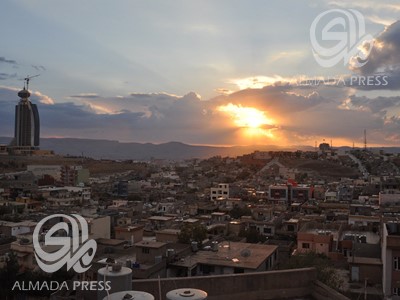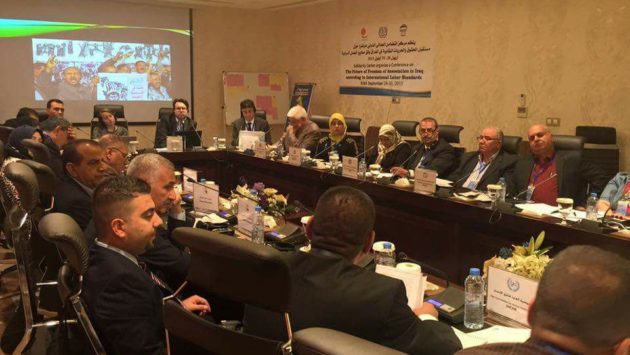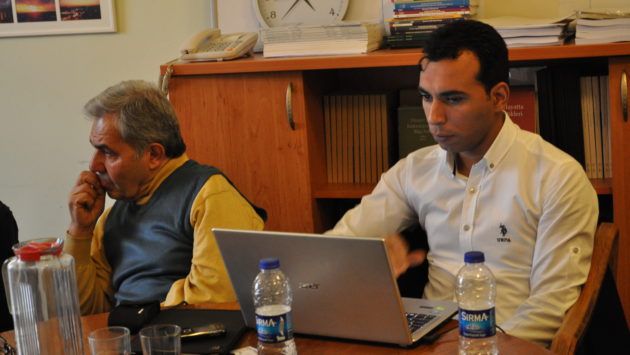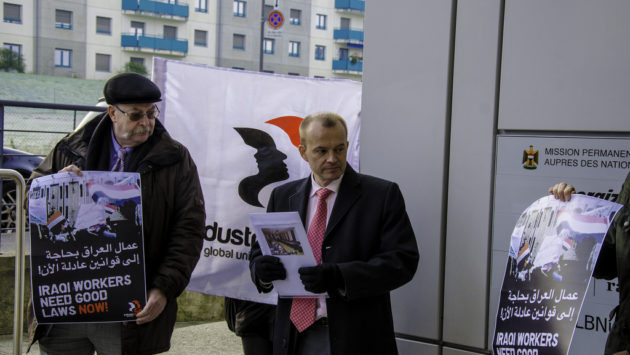Industrialists in Sulaymaniyah Hold Iran and Turkey Responsible for Work Stoppage in the City’s Factories
Al-Mada Press / Sulaymaniyah
On Tuesday, the Chamber of Commerce and Industry in the province of Sulaymaniyah accused Iran and Turkey of flooding the local market with their products with the aim of keeping Iraq in the position of a “consumer” country. This led to the halt of work in 90% of the province’s factories. The Chamber of Commerce and Industry in Sulaymaniyah called on the stakeholders to end the factory shutdown and bring life back to local industry. Meanwhile, industrialists claim that: “the local paralysis in industry is caused by the absence of government support and the current financial crisis more than foreign competition”. Some workers who lost their jobs called on the Kurdistan Regional Government to find “appropriate solutions” to the financial crisis, which would include reopening the stalled factories and plants, and resolving the problem of delayed salaries.
Dlawer Ali Karim, a member of the chamber, said in an interview to Al-Mada Press that “90% of all the plants in the city of Sulaymaniyah, the majority of which are construction materials, are halted” adding that “the only plants that currently operate are those that produce cement, which is dependent on the availability of raw materials in the province”.
He attributed the closure of the majority of factories to the “increase of imports from Iran and Turkey, and the high cost of local production”, noting that “the imported materials are cheaper than those produced in the city plants, including plastics, food and construction materials”.
Dlawer Ali Karim added that “local products cannot compete with their imported counterparts in terms of price”, pointing out that “the low prices offered by Iran and Turkey is the result of their refusal to sell raw materials to factories in Sulaymaniyah at a subsidized rate in order to make the province a ‘consumer province’ like many others in the country. Additionally, the two countries want to support the sale of their own Iranian and Turkish products by selling them cheaper than the raw materials Sulaymaniyah needs to make its own, thereby ensuring their dominant position in the market”.
Karim claims that “there are political reasons for flooding the market with Iranian and Turkish goods at lower prices than those of local products”. But he also stressed that “to prevent the flow of imported goods would be a risky decision, one which requires a clear policy, especially in light of Iraq’s link to the World Trade Organization”.
Karim called on Sulaymaniyah to “find other ways to prevent the flood of imported materials into the local market, and stressed the need to bring life to local industry.” He also drew attention to the fact that “the financial crisis in the KRG is behind the halt of the factories”.
Finally, Karim stated that “releasing the Kurdistan region’s share of the federal budget, and the payment of salaries to employees would help to restart the halted plants while avoiding any radical solutions to the problem of imported goods flooding local markets”.
Arry Ibrahim, the Director of a concrete plant in the Tangro area within the city of Sulaimaniya said in an interview to Al-Mada Press, that “80% of the plants he owns were shut down due to the absence of government support and the financial crisis in the Kurdistan region” pointing out that “the impact of the financial crisis is greater than the impact of imported goods”.
Ibrahim continued, “The financial crisis stopped necessary imported raw materials from coming in to local plants, leading to their closures, and resulted in layoffs of workers and the retention of only some technicians”.
A worker in one of the asphalt plants, A’ko Sardar, said that “The director of the plant decided to lay off dozens of workers three months ago because of the production halt”, noting that “the management of the plant previously reduced the salaries of the employees. This impacted them and their families, especially because most of them do not hold college degrees and so have little or no access to other kinds of work”.
Sardar wondered “How can all these people continue their lives if the factories remain closed?” and called on the related authorities to “find appropriate solutions”.
On 16 February 2015, the Chamber of Commerce and Industry in Sulaimaniyah announced the halt of 90% of its plants due to lack of support from the Kurdistan Regional Government, and pointed to the need to reduce the price of local goods prices in response to cheaper imports. The Ministry of Industry and Trade in KRG approved a proposal for the opening of a new department for the protection of the local products .
It is noteworthy that 3765 plants in the areas surrounding Sulaymaniyah include 298 large plants, and 735 small plants, the rest are no more than small industrial projects.





